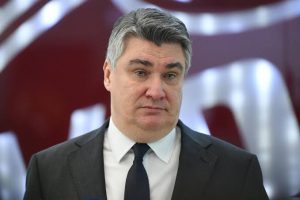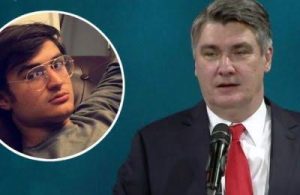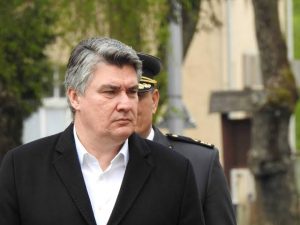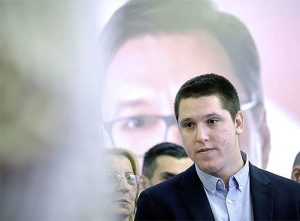
**Wolf Hoffmann, The Lead Guitarist for Accept, Accused Udo Dirkschneider of Being a Bad Leader and More**
In a shocking and intense revelation, Wolf Hoffmann, the iconic lead guitarist for the legendary German heavy metal band Accept, has publicly accused his former bandmate and frontman Udo Dirkschneider of being a “bad leader” and of exhibiting unprofessional behavior during their time together in the band. This highly emotional and controversial statement has left fans and the metal community in disbelief, as the two musicians were once at the heart of Accept’s success, defining the band’s unique sound and contributing to some of the most iconic albums in the genre. However, Hoffmann’s accusations shine a light on the internal tensions and creative differences that ultimately led to Dirkschneider’s departure from the group.
The conflict between Hoffmann and Dirkschneider dates back several years, but this recent outburst from Hoffmann has brought the longstanding issue into the public eye. Both musicians were integral to Accept’s rise to fame, with Hoffmann’s blistering guitar work and Dirkschneider’s powerful, distinctive vocals making them a formidable duo. Together, they helped define the sound of German heavy metal in the 1980s, delivering unforgettable albums like *Balls to the Wall*, *Restless and Wild*, and *Metal Heart*. Yet despite their shared history of success, their relationship appears to have deteriorated over time.

According to Hoffmann, Dirkschneider’s leadership style was not only ineffective but also toxic. In a candid interview, Hoffmann revealed that Udo’s approach to managing the band’s affairs created a divisive and often combative atmosphere within the group. Hoffmann claimed that Dirkschneider’s decision-making was often impulsive and dismissive of the band’s collective input, leading to tension and frustration among the members. He further alleged that Udo’s refusal to compromise or work collaboratively made it difficult for the band to function as a cohesive unit, ultimately affecting their creativity and productivity.
Hoffmann’s comments paint a picture of a band struggling under the weight of Dirkschneider’s perceived authoritarian behavior. The guitarist suggested that Udo’s attitude created a toxic environment, where communication was stifled and decisions were made unilaterally. According to Hoffmann, this caused a great deal of tension and made it hard for the band to move forward musically. Hoffmann also expressed frustration over Udo’s alleged reluctance to take responsibility for the band’s failures or the negative consequences of some of the band’s decisions during this period.
One of the most damning accusations Hoffmann leveled against Dirkschneider was that Udo lacked the leadership qualities necessary to guide the band to continued success. Hoffmann suggested that Dirkschneider’s inability to manage the band’s professional and personal dynamics led to a breakdown in relationships within the group. He further noted that Udo’s actions and attitudes had a detrimental impact on the band’s morale, which ultimately led to his departure from Accept in the early 1980s.
Dirkschneider’s departure from Accept in 1987 was a pivotal moment in the band’s history, and the events leading up to it have remained a point of contention for years. While Hoffmann and the other members of Accept have continued to push forward with different vocalists, Udo went on to form his own band, U.D.O., and achieved considerable success as a solo artist. Despite the distance that has grown between them, Hoffmann’s latest remarks suggest that unresolved issues from their time together still linger.

Udo Dirkschneider, who has remained relatively private about the reasons for his departure from Accept, has not yet responded publicly to Hoffmann’s accusations. However, those close to Dirkschneider have hinted that Hoffmann’s version of events may be one-sided, with the complexities of band dynamics being much more nuanced than Hoffmann portrays. Some suggest that Dirkschneider’s decision to leave the band was driven by personal and creative differences that had been festering for a long time, rather than by any particular fault of his leadership. Udo himself has often been described as a fiercely independent and passionate individual, which may have led to clashes with his bandmates.
Despite the years that have passed since their split, it is clear that the tension between Hoffmann and Dirkschneider remains unresolved. Hoffmann’s statements reflect the frustrations of a man who has spent decades in the shadow of what he perceives as a problematic leadership style. For fans of Accept, the accusations are disappointing, as the band’s legacy has always been built on the incredible chemistry between Hoffmann, Dirkschneider, and the rest of the group. To hear that the two main members of the band had such a troubled relationship behind the scenes is a stark contrast to the unity that their music portrayed.
For those who grew up listening to Accept and were inspired by their groundbreaking contributions to heavy metal, this public feud is disheartening. It serves as a reminder that even the most successful and influential bands can be plagued by internal struggles that threaten to tear them apart. Fans may wonder if the true story of what transpired between Hoffmann and Dirkschneider will ever fully come to light, but one thing is certain: the legacy of Accept will forever be intertwined with the complicated and sometimes painful history of its members.
Ultimately, the accusations from Wolf Hoffmann highlight the difficulties that often accompany life in a band, where personal relationships and creative tensions can sometimes overshadow the music. As Hoffmann and Dirkschneider continue their separate musical paths, fans can only hope that the future of Accept, and Udo’s solo work, will not be clouded by this long-standing animosity.







